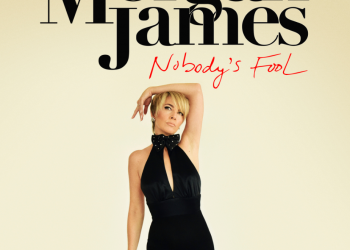There has never been any doubt that veteran and legendary musician Prince is a strong advocate against digital piracy. Ever since 2007, Prince has been fighting against copyright issues, such as from suing YouTube, eBay, and even websites that used and featured anything related to him. Just last year, the singer teamed up with publications to release his album ’20Ten’ as a covermount, and refused digital download services from having access to the project.
In his latest interview with UK newspaper, ‘The Guardian,’ Prince expressed his disdain for how much the music industry has changed in its new found technological age. The singer noted how though he may have tons of unreleased material, fans should not expect any new album to come about anytime soon, if at all.
“The industry changed,” he says. “We made money [online] before piracy was real crazy. Nobody’s making money now except phone companies, Apple and Google. I’m supposed to go to the White House to talk about copyright protection. It’s like the gold rush out there. Or a carjacking. There’s no boundaries. I’ve been in meetings and they’ll tell you, Prince, you don’t understand, it’s dog-eat-dog out there. So I’ll just hold off on recording.”
“I personally can’t stand digital music,” he continues. “You’re getting sound in bits. It affects a different place in your brain. When you play it back, you can’t feel anything. We’re analogue people, not digital.”
Also in the piece, Prince talks about his admiration for singers Adele and Janelle Monae, his contempt to Glee covering his “Kiss” record, and his ability to come off as a “loving tyrant” to his band members.
Prince is currently overseas in Europe, and he is set to be the headliner for the Heinken Open’er festival in Poland.
Prince, the iconic artist behind hits like ‘Purple Rain’ and ‘Raspberry Beret’, has recently announced he will not be recording any new music. His reasoning? A lack of digital copyright laws. It’s a story that’s left many fans shocked – so why is Prince refusing to create new music until there are stricter rules in place? In this article, we’ll explore what exactly led him to make this decision, as well as how it impacts both his career and the industry as a whole.
For decades now, Prince has been an influential force within the world of music. His genre-spanning style and boundary-pushing lyrics have made him one of the most acclaimed artists in history. Recently though, he’s decided to take a stand against something much larger than himself: the current state of digital copyright law. He believes that by withholding his new material from release until these laws are updated or strengthened, he can help bring about long overdue change for future generations of musicians.
With such an important message at stake, it’s clear that this move could potentially have far reaching implications for all involved. How does Prince’s refusal to record effect those who’ve come to expect new releases from him? And if successful, just how might it shape up the landscape of modern music going forward? We’ll answer these questions and more as we dive deeper into this incredible story.
Overview Of Digital Copyright Laws
Digital copyright laws are important for protecting the rights of creators and preventing unauthorized use or replication of their work. Without these laws, musicians, writers, artists, and other creative professionals have no legal way to ensure that their creations remain theirs alone. Unfortunately, many countries lack strong digital copyright regulations leaving millions of creatives vulnerable to exploitation.
In recent years, there has been an increased push from both private citizens and advocacy groups to establish better protections for intellectual property online. This pressure is being driven by a growing awareness that failing to protect this type of work can be detrimental in terms of economic returns as well as social justice issues such as representation and access. As a result, some governments have started taking steps towards establishing legislation that will provide adequate protection against illegal copying or sharing of copyrighted material on the internet.
However, it appears that progress is slow-going in this area as evidenced by prince’s decision not to record new music because he feels his works would not be adequately protected without strong digital copyright laws in place. It’s clear then that further action needs to be taken in order to guarantee creators’ rights over their own products and give them peace of mind when they decide to share their works with the public.
Impact On Prince’s Music Career
Prince’s decision to forgo recording new music due to the lack of digital copyright laws is a significant loss for his fans and supporters. Without these necessary protections, he was unable to guarantee that his works would remain exclusive and be rewarded with the proper royalties. This issue has not only affected Prince but countless other creative professionals who have chosen not to put their work out into the world because they can’t trust it will be safe from theft or misuse.
The implications of this situation extend further than just an individual artist’s career; if creators are unable to efficiently monetize their creations, then entire industries may suffer as well. With no incentives in place, aspiring creatives may decide against pursuing a career in art or writing which could lead to fewer opportunities available overall. Not having access to diverse sources of inspiration could also hurt society as a whole by limiting our perspectives on various topics and possibly leading us down paths we wouldn’t normally take.
It is clear then that digital copyright laws should become a priority for governments around the world in order to protect both current and future creatives from exploitation while encouraging more innovation through secure platforms. As such, strong regulations must be enforced so that musicians like Prince can feel confident about producing new works without fear of them being misused or stolen.
Conclusion
In conclusion, digital copyright laws have had a significant impact on Prince’s music career. He has refused to record new music due to the lack of these laws and their inability to protect his intellectual property. This is an issue that affects many artists across all genres of music, as it can be difficult for them to monetize their work without adequate protection from theft and unauthorized use. It’s unfortunate that such regulations are still lagging behind in certain countries and industries, but hopefully, more will soon be done to ensure all musicians receive fair compensation for their hard work. I think it’s important we continue to support artists like Prince who stand up for what they believe in and fight for the rights of other creatives. We need more people like him who won’t back down when faced with adversity – especially when it comes to protecting our creativity!








